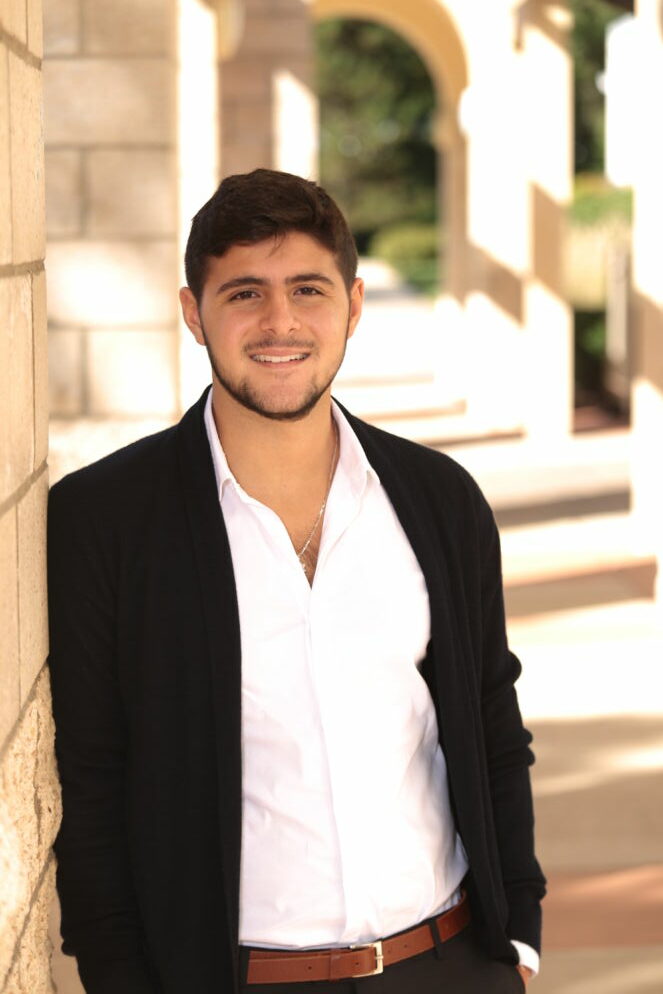
By Aaron Bregman
“Throughout history, Jewish communities have endured persistent mistreatment and anti-Semitism across the globe. From moving from one place to another to their trials in Spain, the Arab world, and Eastern Europe, Jewish populations have faced centuries of hardship. These collective experiences of suffering ultimately prompted a question: How could Jews safeguard their future against persecution? For many, the answer lay in the establishment of a homeland of their own.”
These words were written by Israel Defense Forces Staff Sgt. Omer Balva z”l, a 22-year-old American-Israeli who was killed last Friday evening by an anti-tank missile along Israel’s border with Lebanon. While in the U.S., Omer was called up for reserve duty and promptly flew back to Israel.
Omer was one of my students at Charles E. Smith Jewish Day School in Rockville. He was a sweet, empathetic, loving young man who thirsted for knowledge. He was in my 11th-grade History of the Arab-Israeli Conflict class. As an American Jew, teaching such a nuanced and challenging subject is humbling, especially knowing that many Israelis at the school were learning a part of their history from me. The words above reflect Omer’s introduction to the class capstone paper he wrote in June 2018.
Since the tragic events of Oct. 7, close friends and their families have had harrowing near-death experiences. I felt fortunate that this massacre and subsequent war had spared the lives of the people I know — until now.
In the wake of Omer’s death, I find myself contemplating his words and the broader challenges of teaching the Arab-Israeli conflict. It’s a subject that has tested my abilities as an educator, given its intricate and multifaceted nature. Moreover, I have always been aware that I am helping shape my students’ perspectives, including many who are deeply connected to the conflict through their heritage or family ties.

Thinking about Omer’s words, I am reflecting on what my former students are going through after these two weeks. How could I have ever prepared them for something this awful and tragic?
I was in the classroom during the Gaza wars in 2014 and 2021. I saw how they affected my students, not only because of their family and friends in Israel who were running into bomb shelters but also because of the vitriol and hate they were seeing online for the first time. The conflict was no longer something they learned about in history class — it was very real and personal.
I recall a moment that is on every teacher’s wishlist: when a student has an epiphany. We were discussing the complexity of the 2005 Gaza disengagement when Omer told the class about speaking to an Israeli family friend who opposed disengagement and believed it would be a disaster for Israeli security. When I provided the alternative argument that leaving Gaza would save soldiers’ lives as they would no longer need to protect Israeli settlers, debate ensued in and out of class and through email. That day, Omer recognized the nuances and difficult conversation encompassing this conflict.
Omer asked how Jews could safeguard their future against persecution. For many, the answer has always been Israel, and perhaps now, more Diaspora Jews will understand the direct connection between their own security and the existence of a Jewish state.
In the Arab-Israeli Conflict class, we discussed terms like the Green Line, statistics about how many settlers live in the West Bank, and names of historical leaders such as Begin, Sadat and Rabin. But this conflict is so much more than a social media post or news headline. It is also about human beings and individuals with lives, dreams and hopes. It’s about Omer and so many like him whose lives were cut short in defense of the sliver of earth that is the Jewish homeland.
I hope we can honor Omer’s memory by continuing to think critically and, most importantly, remember the sacrifice these young men and women soldiers are making for Israel and the Jewish people today.
In class, students always asked me why I went into this profession to teach such a challenging subject. I always joked that my ambition was to be just a U.S. history teacher. But Omer and students like him make me proud to call myself a Jewish history teacher.
Omer is now part of Jewish history, and future generations will learn from his example. May his memory be an inspiration to others just as he inspired me.
Aaron Bregman is the director of high school affairs at American Jewish Committee and is the former Evonne and Elliot Schnitzer Family Jewish history department chair at the Charles E. Smith Jewish Day School in Rockville.





